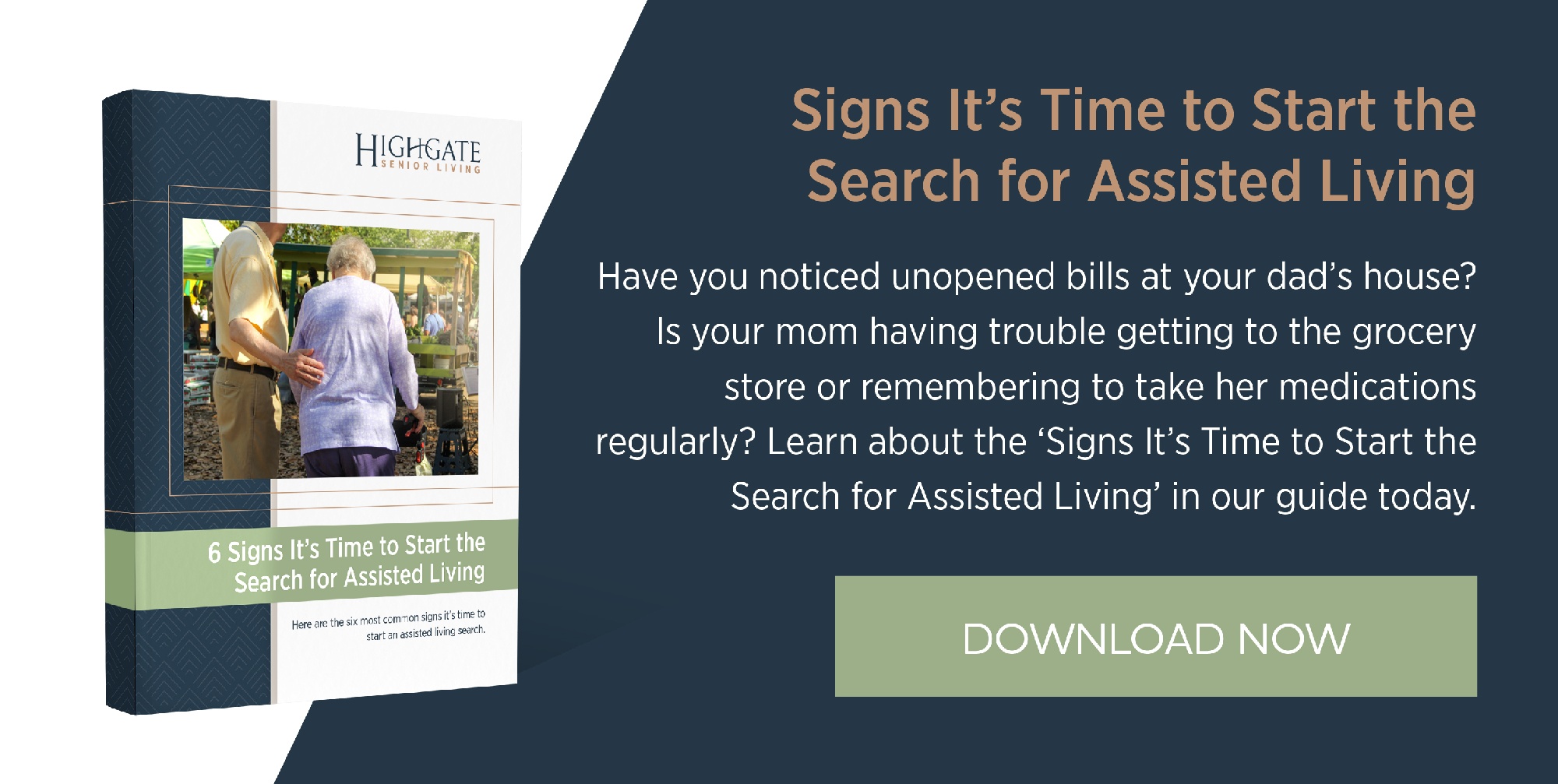
A common question older adults ask is, “Why would I move out of my house?”
They equate living in their home with freedom, independence, and happiness because that is how they have always felt about it. Their question assumes that staying in one’s home will always convey those virtues.
However, the evidence is quite clear that it does not.
Moving into an assisted living center comes with quality-of-life advantages that, often, living at home cannot match. They also offer health benefits that could prolong health. So rather than ask how long assisted living can be avoided, let us consider when the time is right to take advantage of it.
Shrinking Social Circle
One sign that it might be time for an older adult to consider assisted living is if they do not spend regular time socializing.
According to a 2011 Gallup survey, adults over age 65 who have at least three hours of socialization the previous day are 50 percent more likely to report feeling happy than peers who had no socialization the previous day.
Those happy feelings mean something. A study in the Canadian Medical Association Journal showed that feelings of happiness and enjoyment are strongly associated with better mobility and a reduced risk of disability in older adults.
Not only are there health benefits to social engagement, but there are also risks to social isolation.
Social isolation is an objective state in which people have limited interaction with others or none at all. It is associated with loneliness, which is the subjective feeling of sadness about not being connected to others.
Loneliness is a dangerous condition in older adults, contributing to cognitive decline, functional decline, and premature death, according to a study in Critical Care Nurse.
Assisted living facilities offer a vibrant living community with myriad avenues to meet and socialize with peers.
Lack of Exercise
Everyone knows exercise is healthy. Most people still do not do it, though, or do not do enough.
Exercising at home can be difficult for older adults. Many people do not have exercise equipment. They might not live in a walkable neighborhood. Mobility issues might make it difficult to get to a gym.
Not engaging in regular physical activity, though, is like leaving healthy years on the table. It is a sign that it might be a good time to look into assisted living.
Exercise is directly linked to a reduced risk of chronic disease and disability in older adults, according to a different study in the Canadian Medical Association Journal. In fact, the health benefits of exercise are linear. A little exercise is good. More is better.
Assisted living communities offer many programs that encourage physical activity, including outdoor games, on-site gyms, and walking paths around the grounds.
Poor Diet
Older adults often have poor diets, either not eating enough or choosing low-quality foods.
The reasons for this are many, including pain from medication, loss of appetite from medication, and lack of motivation to cook or clean.
Whatever the reason, though, the consequences of not eating enough calories are stark. Weight loss from dieting leads to a loss in muscle mass. Our bodies already lose muscle as we age, and losing further muscle puts older adults at increased risk of functional decline, falling, and even death, according to a study in The Journal of Nutrition, Health and Aging.
Unless an older adult is obese and losing weight under the direction of a doctor, weight loss should be taken as a sign of concern and a warning that a change in living arrangement might be needed.
There are many ways to help ensure a loved one gets a good diet, including senior nutrition programs. An assisted living environment is also an effective method, where professional staff daily prepare balanced, healthy meals and where weight loss can be monitored.
Other Benefits
In addition to improving mood, activity, and diet, assisted living also helps older adults keep track of their medication and practice self-care and eliminates the need for home cleaning and maintenance.
The decision to move out of one’s home is always a personal one. However, when the focus is on maximizing well-being, not time in a house, the benefits of assisted living become hard to ignore.
How do you know when it is time to start considering making the move into assisted living?
The answer is not going to be the same for everybody, but there are more signs you can watch for. Download our Signs It’s Time to Start the Search for Assisted Living eBook to learn more.






